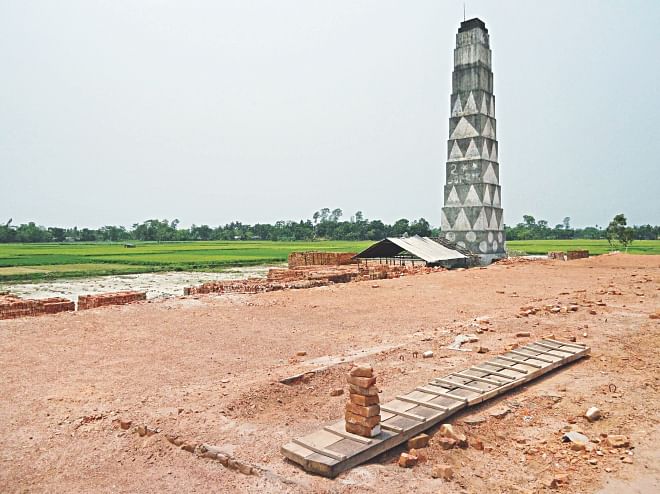Brick kilns eating away farmland
Brick kilns eating away farmland

Brick kilns set up on croplands have been adversely affecting the agricultural production in Lalmonirhat district over the years.
Around 33 brick kilns are running in the district, flouting the rules of the Department of Environment.
Department of Agriculture Extension (DAE) officials in Lalmonirhat said the toxic gas emitted from the brick kilns had been affecting rice farming on about 3,300 bighas of land and fruit farming, especially jackfruits and mangos, on about 600 bighas of land.
Abdul Mazid, deputy director of the DAE, admitted that almost all the brick kilns in the district had been running on croplands illegally, hampering the agricultural production.
“I used to get 32 to 35 maunds of rice from my two bighas of land eight years ago. But the yield came down to around 18 maunds soon after a brick field started operating near my land,” said Abdul Sheikh, a farmer of Madonerchak village in Sadar upazila.
Moreover, he added, the kilns use topsoil of nearby croplands for manufacturing bricks.
Another farmer, Nazer Ali of Baraipara village in Hatibandha upazila, said he used to receive 50 to 54 maunds of rice from his three bighas of land even four years ago.
“But the yield has been 26 to 28 maunds since a brick kiln was set up in the area three years back,” he said.
Locals also complain that smoke that comes out of the kilns has been causing health hazard for their children.
Civil Surgeon Dr Jahangir Alam Sarker said, “Kids and elderly people are more vulnerable to the lung-related diseases caused by black smoke of the brick kilns.
“If anybody inhales that smoke for about 10 years, he is very likely to face lung complications.”
Jalal Uddin, owner of the J&B Brick Kiln at Baraipara in Hatibandha upazila, said he along with other owners had been running the business taking permission from the DoE.
Abdul Mazid, DAE deputy director, alleged the DoE officials never met the agriculture officials before giving permission to set up brick kilns on croplands.
Quamruzzaman Sarker, senior chemist of the DoE Rajshahi division, said they gave the permission after consultation with the locals.
If any written complaint is submitted, the DoE would conduct investigation and take necessary steps, he said.